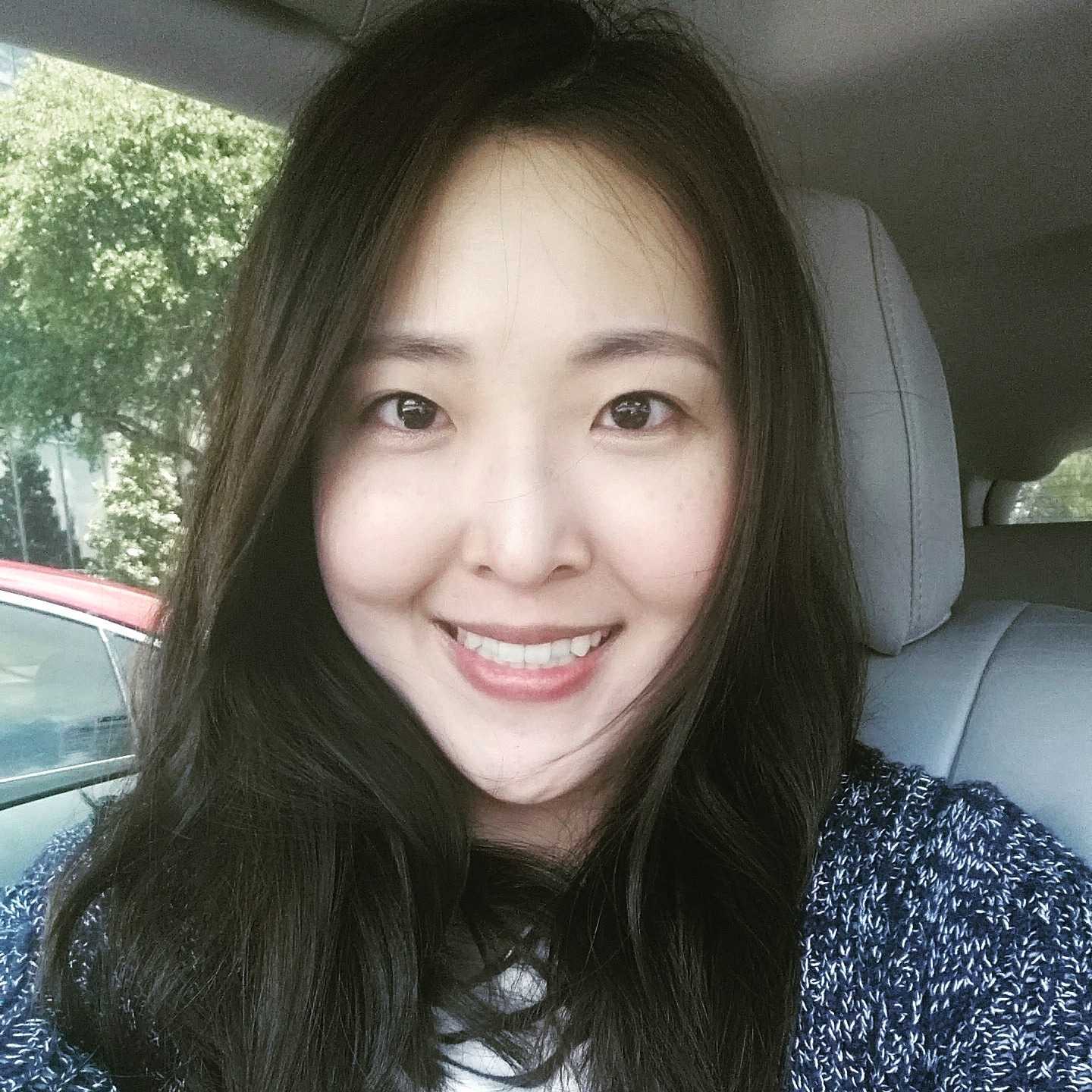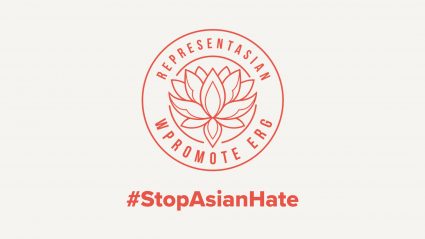International Women’s Day (IWD) is celebrated globally every March 8th to commemorate the cultural, political, and socioeconomic achievements of women. The theme for 2021 is “choose to challenge” (a fitting choice for the Challengers of Wpromote!), which encourages every one of us to call out gender bias and inequality, and to seek out and celebrate women’s achievements.
To mark this momentous occasion and continue moving the ball forward for the women of Wpromote, our RISE (Recognize, Influence, Strengthen, and Evolve) ERG hosted a live panel discussion about Women in Leadership: Achieving an Equal Future in a COVID-19 World—featuring an all-star panel of women leaders:
- Grace Kao, Head of Global Business Marketing, Instagram
- Kashi Walmer, Founder, KCW Consulting Group
- Yuraimi Abreu, Director of Search Strategy, HBO & HBO Max
- Amarjit Dass, Project Manager, University of California San Diego
- Amber Britton, Senior Product Manager of Commercial Growth, SecurityScorecard
- Jackie Leung, Senior Director of Talent Acquisition, Wpromote (Moderator)
Jackie Leung: How has the COVID-19 pandemic affected how you lead and support women in both your workplace and community?
Grace Kao: Health and well-being are so important, especially during the pandemic. Without our physical and mental health, we can’t function at work. This has been such an incredible reminder of how vulnerable we are as human beings when it comes to our health.
“I have been leading with a ‘people first’ over ‘work first’ mindset, because we have to take care of each other and ourselves before we can even start talking about leadership.”
Kashi Walmer: My focus has been figuring out how to give women who are darker-skinned than me and smarter than me access to my network. I started mentoring young Black girls in Los Angeles by using what I know and what I have (living in an affluent area, being light-skinned, and married to a Caucasian), and using that to bring these women into the conversation and get them talking to the people in my network—and it’s been amazing.
Yuraimi Abreu: One thing the pandemic has taught me is how many women are out of work right now or don’t have access to go back to work even if they wanted to. So I decided to take up teaching virtually in order to mentor and sponsor other women—actually vouching for them and opening up those areas to teach them. The marketing world moves very quickly, so one year out of work is a long time for someone.
Amarjit Dass: My primary day job is working in healthcare, so I was in a hospital setting for the entire year of 2020. A lot of women in healthcare, especially nurses, have to juggle and sacrifice many things, and I’ve even had a few of my employees quit their jobs because their kids had to be at home to learn. This has taught me the value of having balance in both my personal and professional life, and it’s something that I try to advocate with my team. If they need to take time off to be with their family or kids—that’s something they should automatically have the right to do without having to sacrifice their work.
Amber Britton: I have been doing a lot more mentoring virtually than I’ve ever done before—offering support to college students who are just graduating by helping them navigate important decisions and make connections. While this was something I’ve done in the past, it has never been a primary focus. Now it’s something that I’ve tried to make a top priority.
Jackie Leung: How have you managed to balance your career and personal life during this time? Do you have any tips or advice for other women?
Kashi Walmer: I have a child who has behavioral and emotional needs, so taking him out of school and educating him was really hard. I’m lucky because we have the means to get help, but one thing that has really allowed me to balance work and home life is therapy. In the Black community, therapy is looked down upon. We’re told to take your burdens to the Lord and leave them at the altar—but I think you can do both. With everything happening around George Floyd, and me being married to a White man, therapy has literally saved my life.
“I believe that if you have a doctor for your teeth, you need to have a doctor for your feelings. Therapy has motivated me to do self-care, and realize that all those things that I do for myself matter. It’s really helped me balance everything in my life.”
Yuraimi Abreu: One thing that therapy has taught me during this whole period is the importance of self-compassion. Having a job and being more fortunate initially left me feeling guilty about my experience during the pandemic. I asked myself, “Why do I beat myself up for not doing enough when everyone’s doing the best they possibly can given the circumstances?” My advice would be to really look at yourself as a person. Taking self-compassion into my meditation practice has been completely life-changing for me during this time.
Amber Britton: The silver lining for me has been not having to commute anymore. I would have an hour commute each way to work back when I would physically go into the office. Now, I’m spending so much more time with my wife: having dinner together and spending mornings together. I feel very fortunate to have gotten closer with my wife, which has been a blessing. In terms of work boundaries, my advice would be to delete Slack off your phone. For me, after I close my laptop, I’m unavailable. As a project manager, there is nothing that is life-saving for me to be reached at all hours of the day for. I’ve set that boundary and stuck to it to give myself that personal time. Now that I’ve had it for the past year, it’s too valuable to let it go.
Grace Kao: Don’t be afraid to ask for help. You’d be surprised at how compassionate other people are. People want to help, they just don’t know how. Be unapologetic about asking for help because asking for help is actually a point of strength. It’s totally okay to say, “I need another day to work on this,” and I promise you that day is going to be so worth it. What might be perceived as weakness is all in our heads, so it’s absolutely okay to ask for help when you need it.
Jackie Leung: Were there any unique challenges you’ve faced throughout your career, and how were you able to overcome them?
Yuraimi Abreu: Oftentimes, how we move forward in the world as women is informed by our race and our culture. I’m an immigrant, a Latina, a woman of color—and I’m also the first person in my family to graduate from college. Navigating a male and predominately white space became a challenge in my career early on. The question that was always top of mind for me at that time was, “Should I be myself? Or should I code-switch to be more palatable for the environment I’m in?” This is the plight of a lot of people who are the “other” in the room. The way I overcame this was by fighting to be my full self, even if that meant that I would feel uncomfortable.
“I decided to vouch for myself and become my own cheerleader, and I urge women to be your own hero because the best way to predict the future is to be the catalyst for change yourself. Always be unapologetically on your own side no matter what you’re faced with.”
Amber Britton: I used to be in customer success/client experience, which was a lot of schmoozing your clients and building relationships. Something that I’ve really struggled with is having that attention being mistaken for something else, having to deal with sexual harassment, and having other people (and sometimes other women) look down on me for speaking up and telling me it’s not that big of a deal. Being the one who’s not afraid to speak out and have a voice has been a really difficult learning experience, but it’s one that I wouldn’t change.
Amarjit Dass: I’ve worked with a lot of doctors and directors of various institutions who were mostly male figures. They looked down on me because I didn’t have a title, and I wasn’t a doctor. At that time, I started my career as an assistant running the hospital’s projects, and I had to advocate for myself to feel like I belonged there. I felt very lost and isolated because no one was there to guide me, so I had to push myself to prove to people that I was smart and here to make a difference in their lives and in patients’ lives. By providing creative solutions to a lot of problems the hospital was facing, my work ethic proved a lot of people wrong.
Jackie Leung: What can we collectively do together to acknowledge intersectionality and focus on creating an inclusive environment that benefits everyone?
Amber Britton: The first thing we have to do is listen—because my experience is completely different than anyone else’s in this room. I recognize that I’m a White woman who lives in a very large coastal city. While I am gay, and I have the experience of being a woman, my experience is very different than a Black trans woman or another White woman in rural Mississipi. We can’t move forward with championing any cause based only on our own personal experience and thinking that’s collective of everyone.
“Widen your net to attract a wide diversity and range of voices, from all different backgrounds—and just listen. Make sure that however you decide to speak up and move forward is representative of multiple voices.”
Amarjit Dass: I am a half Indian and half Syrian immigrant, and there aren’t that many Brown people out there in the world who are voicing their opinions and advocating for the rights of vulnerable populations like refugee women. As the Project Manager at UC San Diego, I primarily work with refugee and immigrant communities who come from Africa, Asia, the Middle East, Central America, and Mexico. COVID-19 has significantly affected these communities, and what I try to do is support these people to speak up and voice how they’ve been impacted by the coronavirus pandemic. I try and find out what institutions like UC San Diego, the San Diego Public Health Center, or the government can do to ensure that refugee women are being protected and have access to healthcare. Women of color have a higher rate of specific diseases like heart disease, but this is not talked about among these communities. I try to advocate for a platform for these women to educate themselves and voice their concerns.
Grace Kao: There’s always another perspective out there that we don’t always see. When we’re in a room or a meeting, we must look around and speak up when it’s not diverse or inclusive. We need to advocate to make sure that we’re creating that space. What’s helped me throughout my career is that I’ve had mentors who I’ve learned from and who’ve also sponsored me. There is a difference between mentoring and sponsoring, and we have to pay that forward.
Jackie Leung: What’s a piece of leadership advice that you’ve been given that empowered you or left you feeling defeated?
Amarjit Dass: Growing up, I was a very shy girl because I was made fun of throughout middle school and high school. I’m half Indian and half Syrian, so there wasn’t anyone like me. It was always difficult for me to be comfortable being a leader because I was afraid of voicing my opinions and what other people would say.
“But someone once shared a quote with me from Douglass McArthur that says, ‘A true leader has the confidence to stand alone, the courage to make tough decisions, and the compassion to listen to the needs of others. He does not set out to be a leader, but becomes one by the equality of his actions and the integrity of his intent.’ That quote has always been with me throughout my career.”
Grace Kao: A piece of advice that’s really defeating is when someone tells me, “You should be really satisfied with where you are right now or with what you have.” Only you can decide whether something fulfills you, whether you’re satisfied, or whether you’re grateful for something. Don’t let other people tell you whether you should be satisfied or not. That would be my advice on this defeating piece of advice that I’ve gotten: don’t let someone else paint your success. You should paint your own success of what makes you happy.
Kashi Walmer: I come from a sports background—having played sports all my life. My dad would always tell me, “You have to understand that you are always the janitor. I don’t care what your title is, you do everything. If the company wins, it’s on you; if the company fails, it’s on you.” This has taught me to always remember that you are not better than anyone: you have to sweep the floors and mop the floors just like everybody else. My business card when I first started used to say “Custodian,” to remind myself that I’m always working to do better. My big thing is to always make eye contact and say hi to others no matter where I am—any time I see a person of color. It’s really important to extend an olive branch because that’s how you breed camaraderie.
Jackie Leung: How can leaders and organizations support and empower women in the workplace?
Yuraimi Abreu: I’m lucky to work at an organization that discusses the need for sponsorship and mentorship, but it’s important to distinguish between the two. A mentor is someone you can go to for advice, but if that person is not privy to your challenges as a mother, as a daughter, as a sister, or as a women who may not identify with the traditional gender pronouns that others see—their advice can fall short in the reality of your life. I would love to see more companies and leaders take on sponsorships, and act as someone who will vouch for you and give you a seat at the table if you aren’t already invited. That’s how we can be each other’s allies from a corporate perspective.
Amber Britton: People of color need white allies, and women need male allies. When we’re talking about who is at the top, unfortunately a lot of the times it’s white men. We need those men to make space for us, and help us have a voice in those boardroom meetings. Overall, I think companies need to pay us fairly, listen to us, and make change. I have been at companies where women have demanded to see a salary breakdown—only to be told, “We’re working on it” for over four years. All that says to me is that we’re not being paid fairly. Listen to what your female employees want, take action on what those things are, and pay them fairly in the process.
Amarjit Dass: Allow more space for diverse and under-represented groups. At Miry’s List, we have 10 paid staff members, and seven out of those 10 staff members are refugees. They hold director-level positions at this small nonprofit, so it’s really great to have marginalized groups be the faces of organizations, and lead by example.
Jackie Leung: From challenge comes change: how do you #ChooseToChallenge as we continue our daily lives and implement positive change?
Grace Kao: I choose to challenge us to support others to speak up, and for us to speak up for ourselves. As Kashi said, we’ve got to call it.
Kashi Walmer: I choose to challenge microaggressions. Every time you are in a space and you know something is uncomfortable, and you have to ask, then it’s not right. I’m in sports, so I’m quick with my tongue and get in trouble a lot of times. But it’s really going to happen in your own circle of friends, your office group, at the water cooler, etc. Really take the time and make sure that you’re not letting those little things slide because it adds up, and it’s very, very, very hard on people of color.
Yuraimi Abreu: I choose to challenge everyone who identifies as a woman to sponsor another woman, to vouch for another woman, to praise another woman. I encourage you all to do that today, like right after this.
Amber Britton: I choose to challenge the idea that women have to be mothers. I am not a mother, and I don’t plan on being a mother. My wife and I have made that decision for our lives, and that’s okay. I think there are amazing women out there who are mothers, but it’s just not for me, so I choose to normalize that for myself and for other women.
Amarjit Dass: I choose to challenge creating a safe platform for under-represented, marginalized groups to amplify their voices. I don’t think they need to be empowered; they are already empowered. They just need a platform to speak on what they think should be done to reduce the healthcare disparities in their communities.













Responses